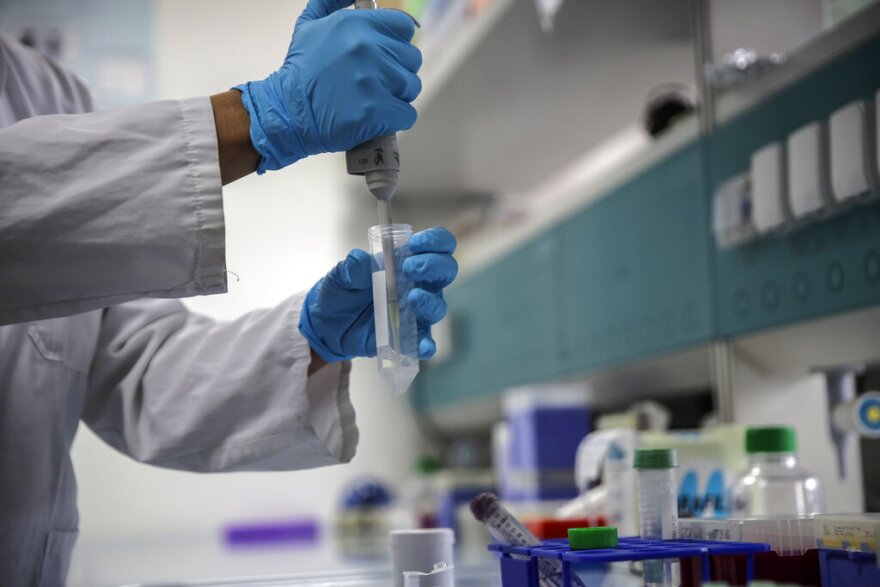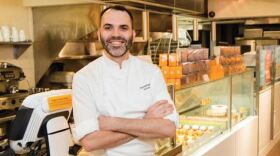The speed at which the COVID-19 delta variant spread in Southern Nevada surprised a researcher who hunts for the virus in wastewater.
Professor Edwin Oh of UNLV’s Kerkorian School of Medicine told State of Nevada the highly contagious variant arrived in the spring, earlier than researchers thought it would.
“We didn't expect delta to show up in our wastewater for some time,” he said.
Oh said the virus then quickly become widespread in testing samples, where the variant was identified by its genetic mutation.
“We see this large signal in many of our wastewater facilities," he said. “So it's been really surprising that this variance, the delta, has shown up at this frequency.”
Researchers have also recently identified in Southern Nevada the lambda variant, which is prevalent is South America and possibly more vaccine-resistant than prior strains. Oh said he’s awning additional test results by public health officials are monitoring the situation.
Testing wastewater samples can help identify specific neighborhoods where the coronavirus and its variants are prevalent, Oh said.
“We can go to a wastewater facility that services again, up to 800,000, 900,000 people, but we can also go to a manhole that contains sewage that's coming from a smaller community,” he said. “By sampling sewage from this manhole, we can determine whether or not COVID is circulating in a smaller community and the types of variants that might be circulating.”
Oh said the research relies on a collaboration with the Southern Nevada Water Authority as well as colleagues in Arizona and California. He also said his work is laying a foundation to better address future public health challenges.
“My hope is that the infrastructure here in Southern Nevada can be improved such that we will be sequencing viral genomes either for COVID-19 or if some other pandemic hits Southern Nevada,” he said. “I think in some ways, this is an opportunity for us to prepare ourselves better for the event that we have to mobilize these resources again, and if we do, I'd like to believe that we would be much better prepared the next time around.”
Edwin Oh, associate professor, UNLV Kerkorian School of Medicine














